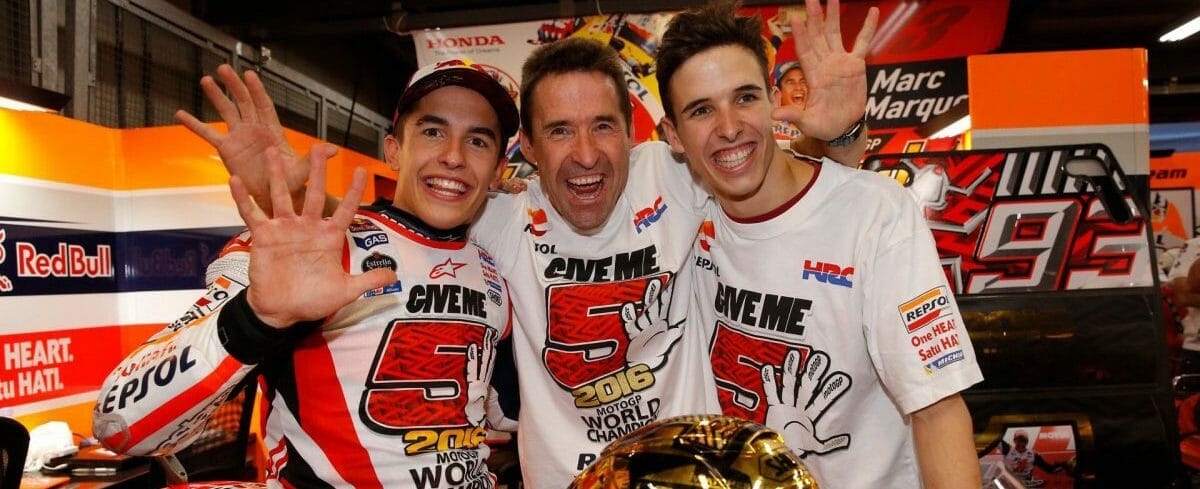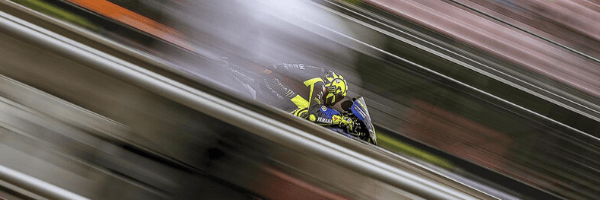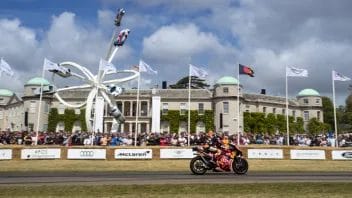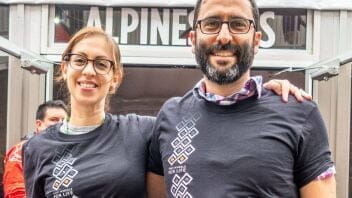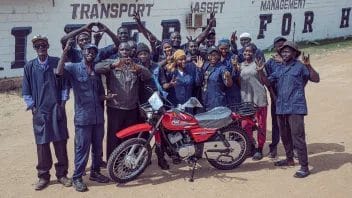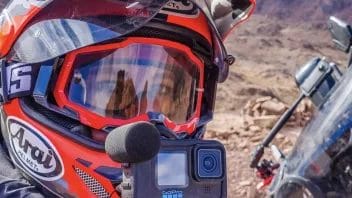Fathers, Racing to Save Lives
What is it to be a father? Wanting to help your child to reach their potential but wanting to protect them.
For the fathers of MotoGP™ riders danger and success lie in close proximity, but in sub-saharan Africa dangers are real and present for all parents and keeping their children safe, let alone supporting them to be successful can be beyond their control.
Imagine the responsibility of seeing a child through the drama and pitfalls of MotoGP. Julia Marques did just that. With his unstinting support he saw his two sons, Marc and Alex, rise to the very pinnacle of the sport. He says:
“I have bent over backwards to support them and take them here, there and everywhere when they were starting out…I can live this dream with them…although sometimes I get very nervous in the pit garage, crossing my fingers. At times, I can’t even look at the screen!”
Graziano Rossi did it too, giving everything to help the kid who became the incomparable Valentino. Colin Stoner, father of Casey, brought the whole family to Europe so that his son could fulfil a potential that, back then, neither of them could truly imagine.
But it’s easy to see why these riders, fathers and sons, are committed supporters of Two Wheels for Life.
In sub-Saharan Africa motorcycling is not a sport but an exceptionally useful form of transport. Sometimes it is the only reliable way of reaching remote areas in all weather conditions.
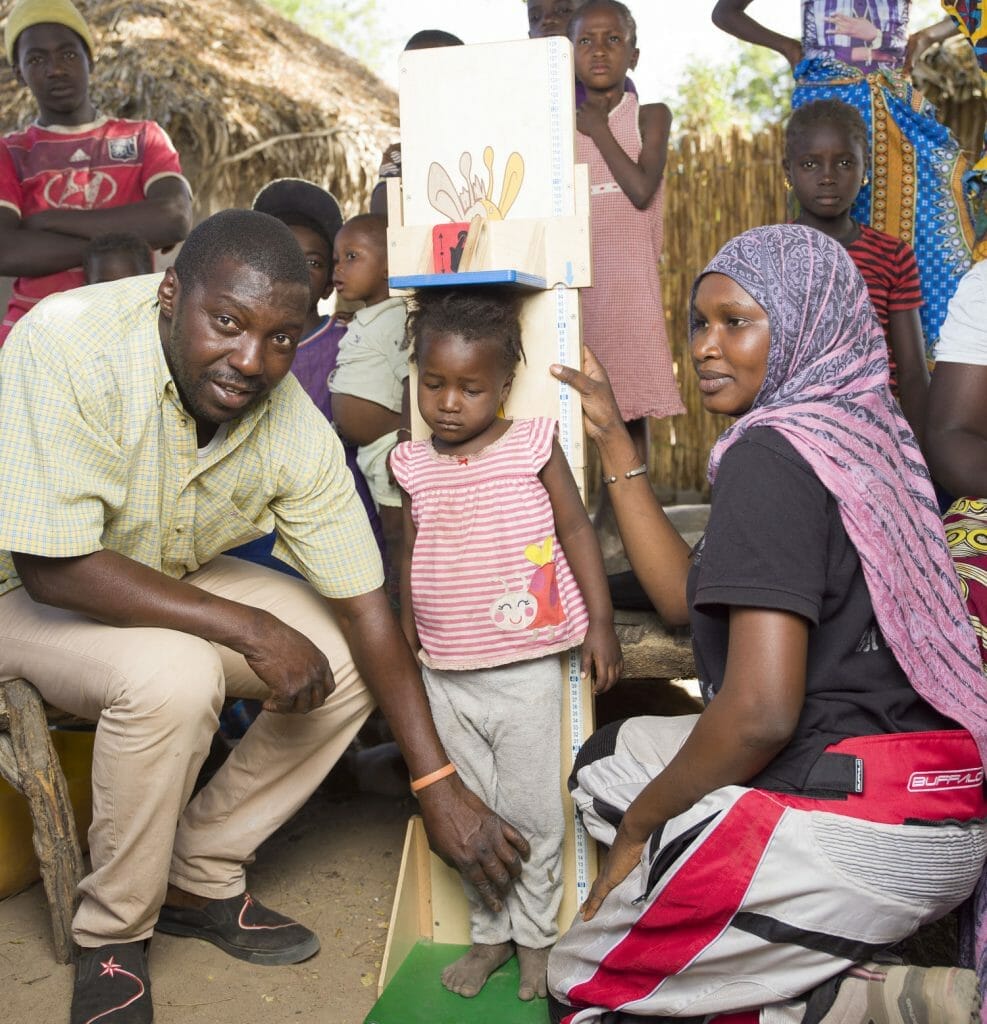
Jogob Gassama, community health worker, monitoring children’s growth one of the 10 villages she covers using her motorcycle.
In some countries, diseases like malaria and TB are rife and children are vulnerable to diarrhoea and malnutrition. In countries like Lesotho and Nigeria around one in ten children die before their fifth birthday. Without adequate health care, it’s hard for parents to protect their children in the way that every parent wants to.
Two Wheels for Life supports programmes in sub-Saharan Africa that make sure health workers have reliable motorcycles and other vehicles so that they are able to reach people who need care.
Transport allows doctors and nurses to visit people in their homes, where they can check that the water the family is drinking is safe and that food is nutritious and hygienically prepared – the first steps to keeping children healthy. Health workers also hold regular clinics near to where people live so parents don’t have to travel large distances with children who are ill.
With reliable vehicles, health workers can get to remote areas to carry out life-saving immunisation programmes for children. Transport is also a key factor in preventing the spread of diseases that can’t be immunised against. When a case of TB is reported in a village, health workers quickly and reliably travel to the area and carry out screenings to identify others who may have been infected. This way they can ensure that patients get the treatment they need and can also give advice on how to avoid spreading the disease to others.
Thanks to Riders For Health, our local development partner, cases of TB in the Gambia are now reducing.
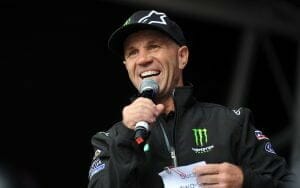
Two Wheels for Life Co-Founder Randy Mamola
As Randy Mamola, MotoGP legend and co-founder of Two Wheels for Life, who supported his own son, Dakota, in the world of racing, says,
“A registered nurse or doctor is given a motorcycle, is taught how to ride it, takes it to the villages. The village people bring their kids, knowing that that doctor’s there on Tuesdays now, because we’ve given them reliable transportation. And their children then can be vaccinated just like our children would be in the western world. That’s what I, as a father and a racer, want for my children, Dakota and Taylor, and that’s what I want, as a father, for Africa and the whole world.”
If you would like to support Two Wheels for Life and make sure all fathers can rely on healthcare for their children:
